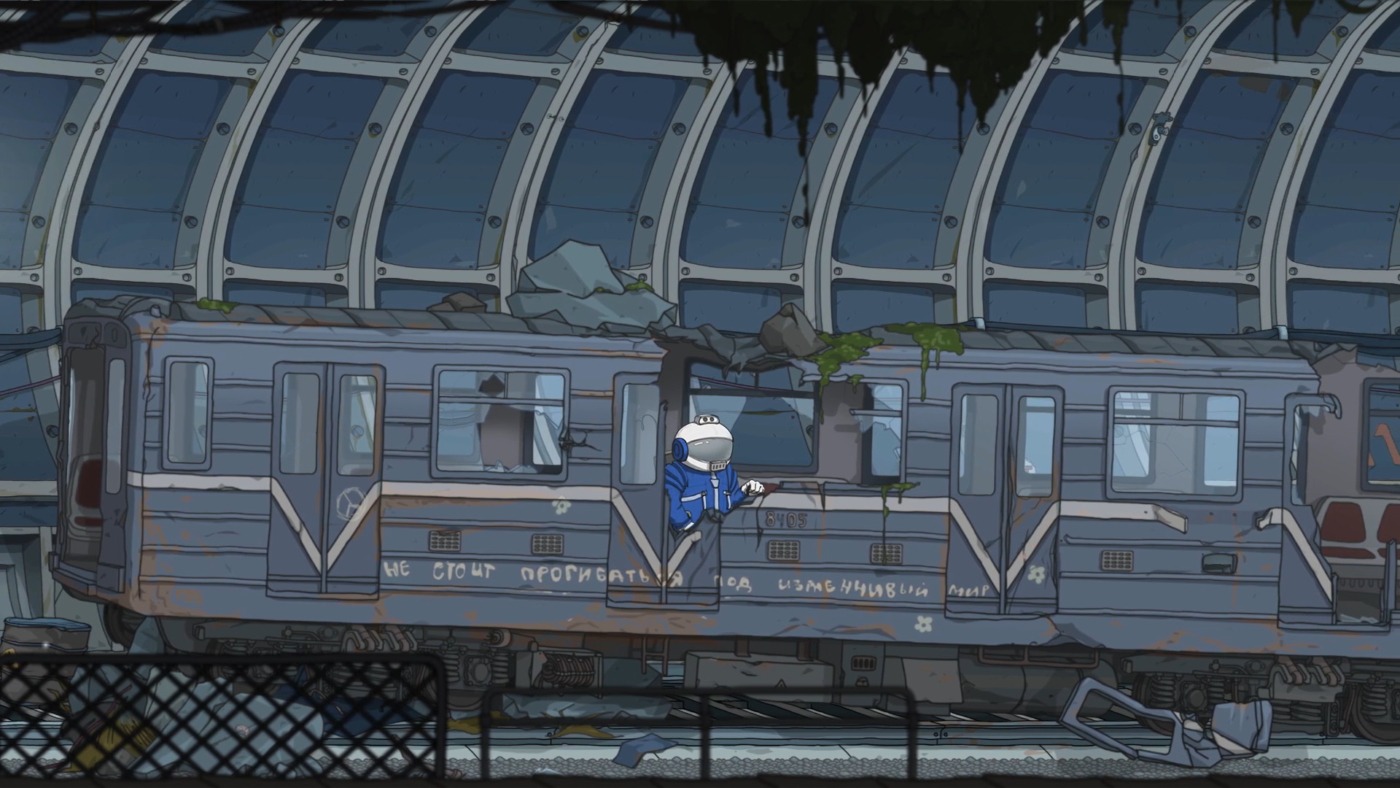The Great Perhaps – Steam Review
The Great Perhaps sets lofty ambitions – a story concerning time travel alongside themes of loss and grief, amongst wider political messages about environmentalism – however it ultimately falls short in several key areas.
To create a grand narrative, there needs to be scale – which the game has in spades. The astronaut returns to a future earth to find it ravaged, and intricate vistas showcasing the games fine artwork provide a backdrop to 2D exploration. In the opening level, the astronaut finds a lamp, which, when activated, places him in the past, during a thriving period for the city, which again, allows for the art to showcase itself and creates a different mood through its warmer colour palette. This also introduces the game’s central mechanic, which is moving from one time to the other to bypass obstacles or solve puzzles. While novel at first, it plays out like a simplified version of the puzzle mechanic in games like Paper Mario or Fez. Furthermore, the addition of a mechanic where you can only spend a limited amount of time in the past before it automatically switches you back to the future led to many annoying deaths due to having one or two pixels still on areas that were hazardous or inaccessible in the future world, leading to a frustrating checkpoint restart.
So where does The Great Perhaps distinguish itself from the aforementioned titles? It tries to create a grand narrative and also to focus in on human relationships and response to the tragedy. This focus is welcome, but in an effort to avoid tons of exposition, characterisation is too sparse. As a result the first big twist is just a confusing moment as it was never alluded to before and we don’t know enough about the astronaut for it to really affect us in any way. When exposition is given, it takes the form of dialogue between the astronaut and his AI, or a monologue of one to the other. The voice acting for the AI is incredibly annoying and jarring to boot. The problems with the narrative then become twofold, in that the storytelling that should be explicit – characterisation and scene setting – are too implicit for us really to connect, and the storytelling that should be implicit – themes and political readings – are made explicit in ham-fisted monologues. In one vastly overgrown park, the astronaut stops to give one of the longest pieces of speech in the game about the overwhelming power of nature and its ability to outlast human impermanence and myopia. When at this point we still know barely anything about the astronaut, it should perhaps be focusing on giving us reasons to empathise with his character, rather than awkward and clumsy clichés which anyone would have picked up on by that point in the game anyway.
This is a shame, because when the game is subtle, it is refined and creates an excellent mood. The arresting score, especially noticeable when one particular enemy appears several times deserves special credit. The juxtaposition between the ornate past and desolate future, and how their stories intertwine creates genuine engagement, a solemn, dejected mood and occasional catharsis – the interactions with the author, or the wall painter in early levels showcase this well. When the game draws you in with these elements, it is a truly enjoyable experience, and despite every critique above, I enjoyed my time with it. I would even recommend it to people if you are looking for an interesting puzzle adventure game. However, its flaws are obvious, and at times glaring. I was willing to look past these, despite a number of incredibly annoying deaths pulling me out of the experience from time to time. If you can too, you will enjoy it. The game is ambitious, moody and beautiful but just how good it could have been with better voice acting and tighter storytelling will remain A Great Perhaps.

Comments